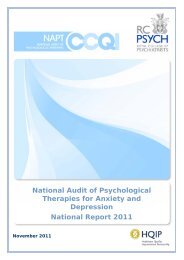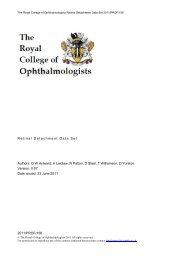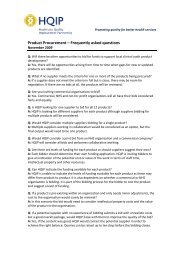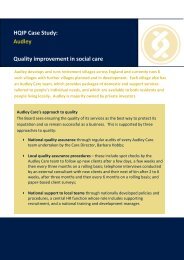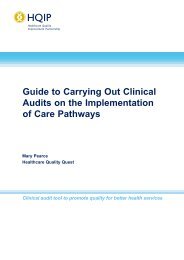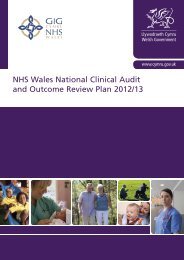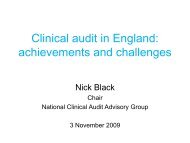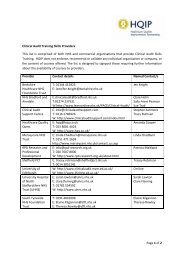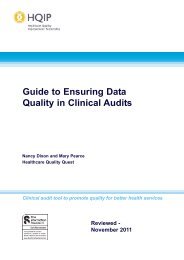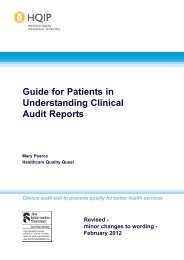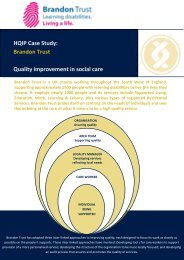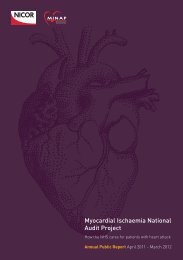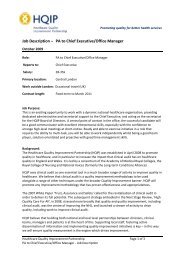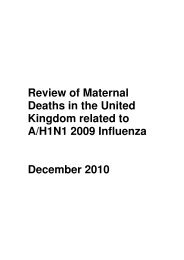Good Governance Handbook - HQIP
Good Governance Handbook - HQIP
Good Governance Handbook - HQIP
You also want an ePaper? Increase the reach of your titles
YUMPU automatically turns print PDFs into web optimized ePapers that Google loves.
7.5 Clinical audit<br />
Clinical audit was originally a process by which clinicians reviewed their own practice,<br />
but is now recognised as capable of giving information and assurance about clinical<br />
quality as a whole. Ten simple questions for boards 46 :<br />
1. Clinical audit can be used as a strategic tool; your organisation’s clinical audit<br />
strategy should be allied to the broader interests and targets that the board<br />
needs to address.<br />
2. There should be direction and focus on how and which clinical audit activity<br />
will be supported in the organisation.<br />
3. There should be appropriate processes for instigating clinical audit as a direct<br />
result of adverse clinical events, critical incidents, and breaches in patient<br />
safety.<br />
4. The clinical audit programme should be checked for relevance to board<br />
strategic interests and concerns. It is important that results are turned into<br />
action plans, followed through and re-audit completed.<br />
5. There should be a lead clinician who manages clinical audit within the<br />
organisation, and who is clearly accountable at board level.<br />
6. Patient involvement should be considered in all elements of clinical audit<br />
including priority setting, means of engagement, sharing of results and plans<br />
for sustainable improvement.<br />
7. Clinical audit should be built into and inform planning, performance<br />
management and reporting.<br />
8. Clinical audit should cross care boundaries and encompass the whole patient<br />
pathway.<br />
9. The criteria of prioritisation of clinical audits should balance national and local<br />
interests, and the need to address specific local risks, strategic interests and<br />
concerns.<br />
10. Check if clinical audit results and complaints are evidence based and if so,<br />
develop a system whereby complaints act as a stimulus to review and<br />
improvement.<br />
46 <strong>HQIP</strong>, Clinical Audit: A Simple Guide For NHS Boards and Partners, 2010<br />
www.good-governance.org.uk 36



